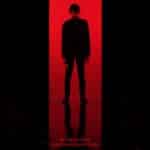
The Card Counter
Mute and solitary, William Tell, a former soldier turned poker player, roams the casinos, fleeing a past that haunts him. He then crosses paths with Cirk, an unstable young man obsessed with the idea of taking revenge on a high-ranking officer with whom Tell once had trouble. As he prepares for a decisive tournament, Tell takes Cirk under his wing, determined to divert him from the paths of violence, which he once knew too well…
Although he has made around twenty feature films, Paul Schrader will eternally continue to be recognized as the screenwriter of Taxi Driver. Those who know and appreciate his work as a filmmaker since Blue Collar will not be surprised by The Card Counter and its Jansenist side which make it a film out of time or more precisely modeled on a very 70s atmosphere. will be at their expense, like its dark and magnetic hero, The Card Counter refuses the spectacular and wanders through introspective lands, with its deliberately repetitive images of casino rooms, hotel rooms and parties of poker filmed without any fever. With the theme of redemption, an obsessive subject for Schrader, the film lays down its cards in a haunting way, creating a fascinating and deleterious atmosphere even if there is no apparent violence. The big scene expected, given the traumatic past of the main character, only occurs in the last minutes of the film and even then it is skipped, offscreen, because it is obviously not the main thing. Carried by a strange and penetrating soundtrack and enhanced (paradoxically) by the minimalist game of Oscar Isaac, The Card Counter is a great film with a dark soul where playing his last card takes on all its meaning.







